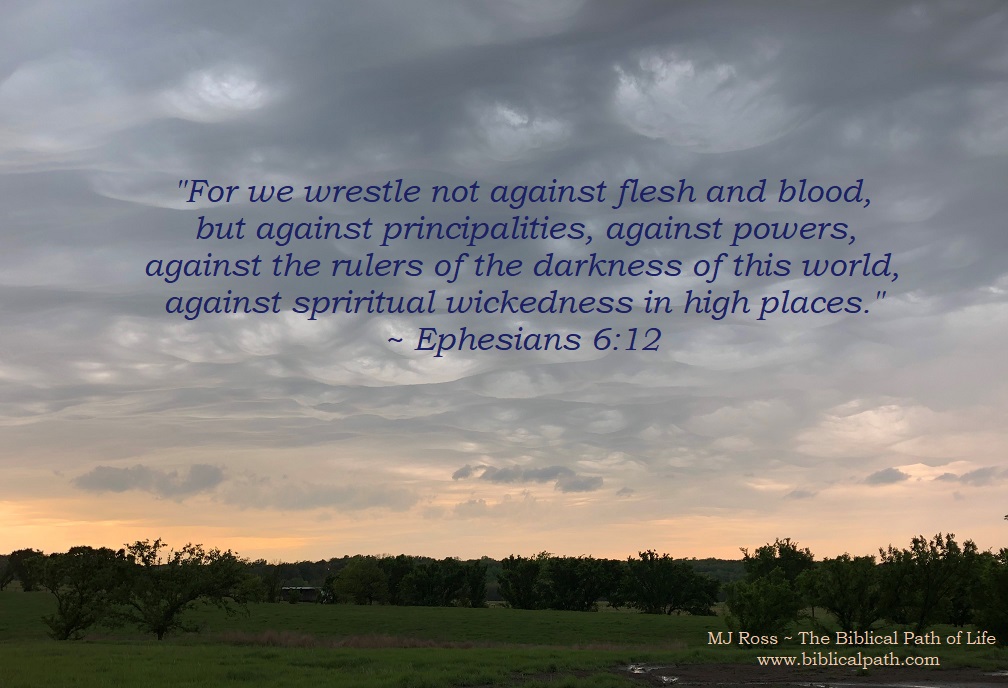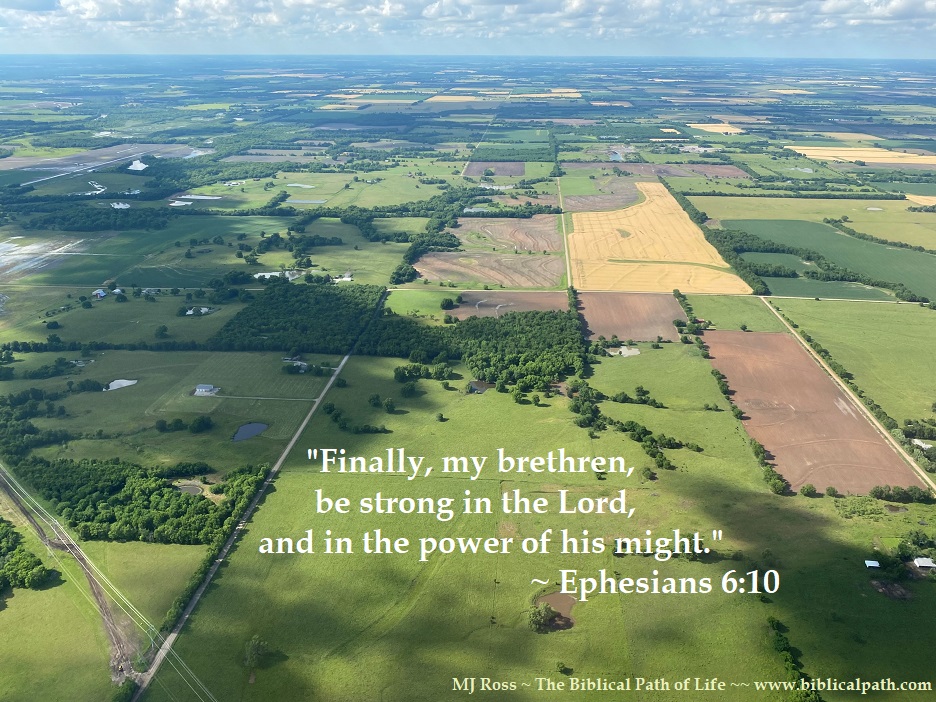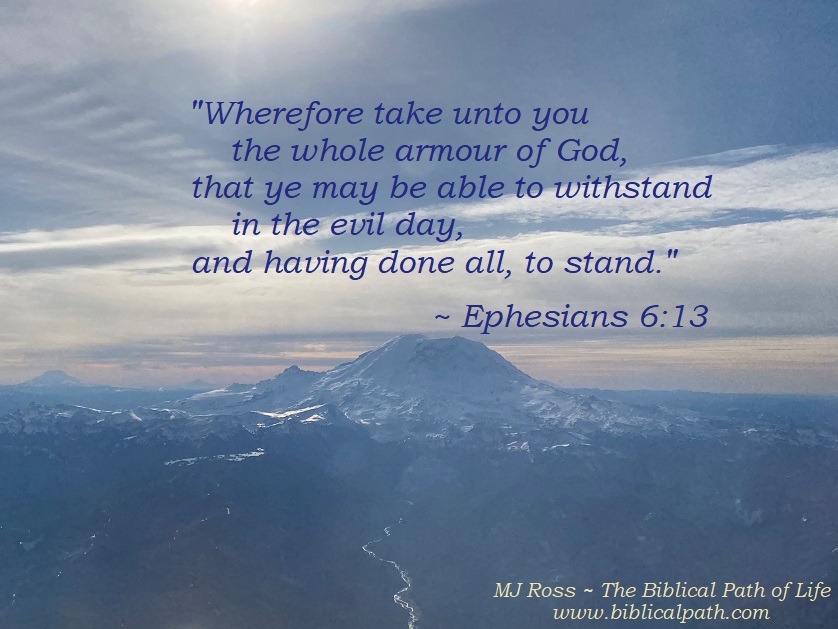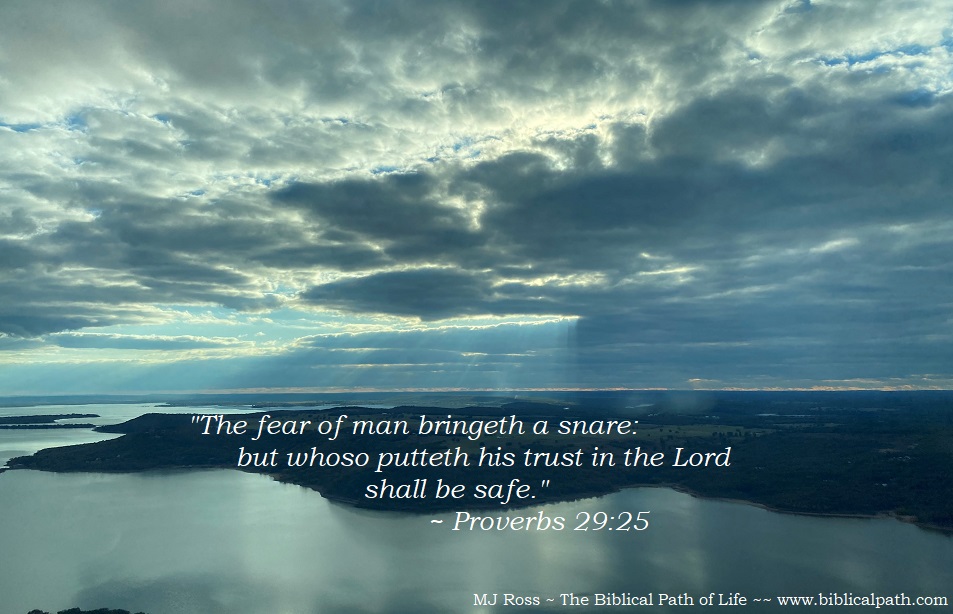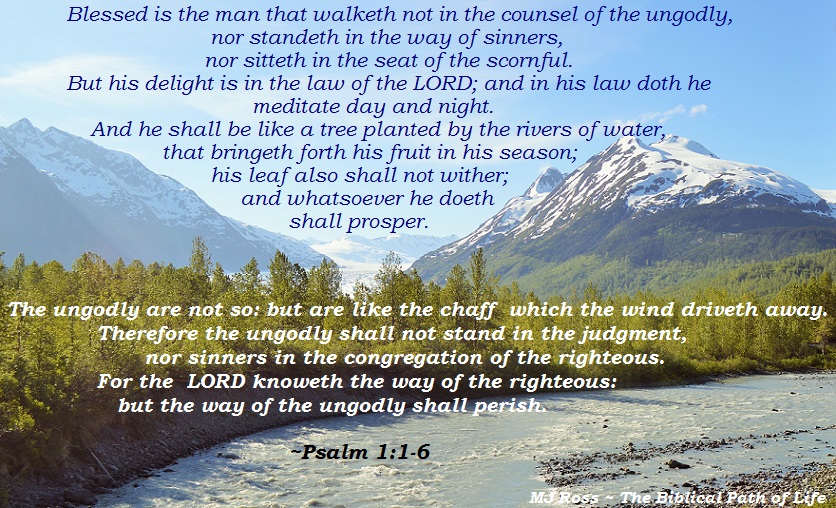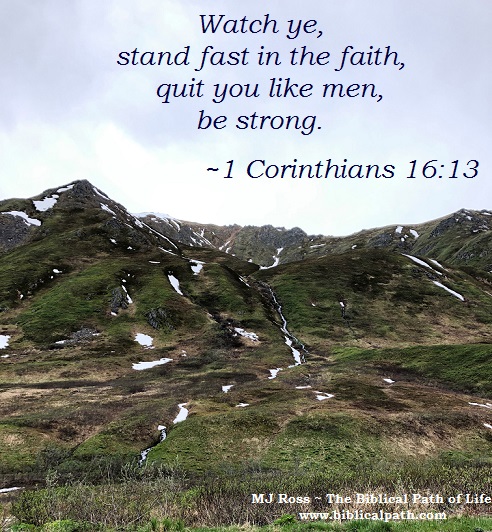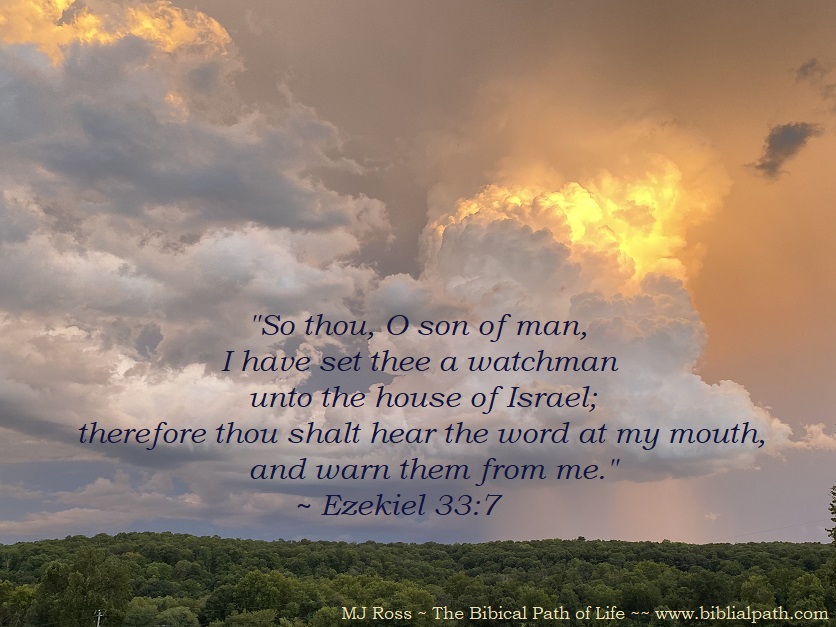
“So thou, O son of man, I have set thee a watchman unto the house of Israel; therefore thou shalt hear the word at my mouth, and warn them from me.”
Ezekiel 33:7
God called Ezekiel five years after he had been captured from Jerusalem and carried into Babylon (see Ezekiel 1:1-2). God would send Ezekiel to warn His people of pending judgment for sin. “1. And he said unto me, Son of man, stand upon thy feet, and I will speak unto thee. 2. And the spirit entered into me when he spake unto me, and set me upon my feet, that I heard him that spake unto me” (Ezekiel 2:1-2). Take note that God told Ezekiel to stand, giving him God’s Word, and he was then filled with God’s Spirit which would enable Ezekiel to do the task at hand. In that calling, like other prophets before him, he was warned that the people would not hear him. “But the house of Israel will not hearken unto thee; for they will not hearken unto me: for all the house of Israel are impudent and hardhearted” (Ezekiel 3:7). Take note that God said they were “impudent and hardhearted.” Impudent means “powerful and able to resist. It can have a connotation of stubbornness, impudence, and being unyielding see Ezekiel 2:4; 3:7-8)”. Hardhearted means “inflexible, obstinate, hardened, stubborn of heart: the totality of man’s inner or or immaterial nature”. This sounds like it would be an extremely difficult task!
Why would the people not hear? Then in turn, why would God not hear them?
- “Son of man, thou dwellest in the midst of a rebellious house, which have eyes to see, and see not; they have ears to hear, and hear not: for they are a rebellious house” (Ezekiel 12:2). They were a rebellious people.
- “Because they despised my judgments, and walked not in my statutes, but polluted my sabbaths: for their heart went after their idols” (Ezekiel 20:16).
- “Therefore will I also deal in fury: mine eye shall not spare, neither will I have pity: and though they cry in mine ears with a loud voice, yet will I not hear them” (Ezekiel 8:18).
To add to the difficulty of Ezekiel’s task, God said Ezekiel would be dumb (unable to speak) for a period of time. “26. And I will make thy tongue cleave to the roof of thy mouth, that thou shalt be dumb, and shalt not be to them a reprover: for they are a rebellious house. 27. But when I speak with thee, I will open thy mouth, and thou shalt say unto them, Thus saith the Lord GOD; He that heareth, let him hear; and he that forbeareth, let him forbear: for they are a rebellious house.” (Ezekiel 3:26-27). Until Ezekiel could speak again, God had Ezekiel act out several signs of warnings (see Ezekiel 4-5). God let Ezekiel know that the dumbness would be removed. In the meantime, Ezekiel was one of the signs that was given to the Israelite people who were already in captivity. “In that day shall thy mouth be opened to him which is escaped, and thou shalt speak, and be no more dumb: and thou shalt be a sign unto them; and they shall know that I am the LORD” (Ezekiel 24:27). That dumbness of Ezekiel would be removed when Jerusalem was destroyed by Babylon. “21. And it came to pass in the twelfth year of our captivity … that one that had escaped out of Jerusalem came unto me, saying, The city is smitten. 22. Now the hand of the LORD was upon me in the evening, afore he that was escaped came; and had opened my mouth, until he came to me in the morning; and my mouth was opened, and I was no more dumb” (Ezekiel 33:21-22). God opened Ezekiel’s mouth so he could speak again.
God called Ezekiel to be a watchman to the house of Israel. The first time, He was to give them a warning from God (see Ezekiel 3:16-27). Before God opened Ezekiel’s mouth, God called Ezekiel to give another warning, however it included a promise of restoration one day (see Ezekiel 33:22). “So thou, O son of man, I have set thee a watchman unto the house of Israel; therefore thou shalt hear the word at my mouth, and warn them from me” (Ezekiel 33:7). If Ezekiel was not faithful to declare God’s Word to the people, Ezekiel would be accountable for their lives (see Ezekiel 33:8-9).
Christians live in a world today where most people do not want to hear about God. However, we can share the good news of Jesus with others. We should follow the example of Paul. “5. For our gospel came not unto you in word only …as ye know what manner of men we were among you for your sake. 6. And ye became followers of us, and of the Lord, having received the word in much affliction, with joy of the Holy Ghost: 7. So that ye were ensamples to all that believe in Macedonia and Achaia. 8. For from you sounded out the word of the Lord not only in Macedonia and Achaia, but also in every place your faith to God-ward is spread abroad; so that we need not to speak any thing. 9. For they themselves shew of us what manner of entering in we had unto you, and how ye turned to God from idols to serve the living and true God; 10. And to wait for his Son from heaven, whom he raised from the dead, even Jesus, which delivered us from the wrath to come” (1 Thessalonians 1:5-10). Paul not only shared the Gospel message, but lived a Christ-like life. The people heard, saw, and turned from idols to serve the living God by believing in Jesus. This faith in Jesus, delivers from the “wrath to come”.
Do you live a life where others can see Jesus in you, then able to hear as you share the Gospel message?
